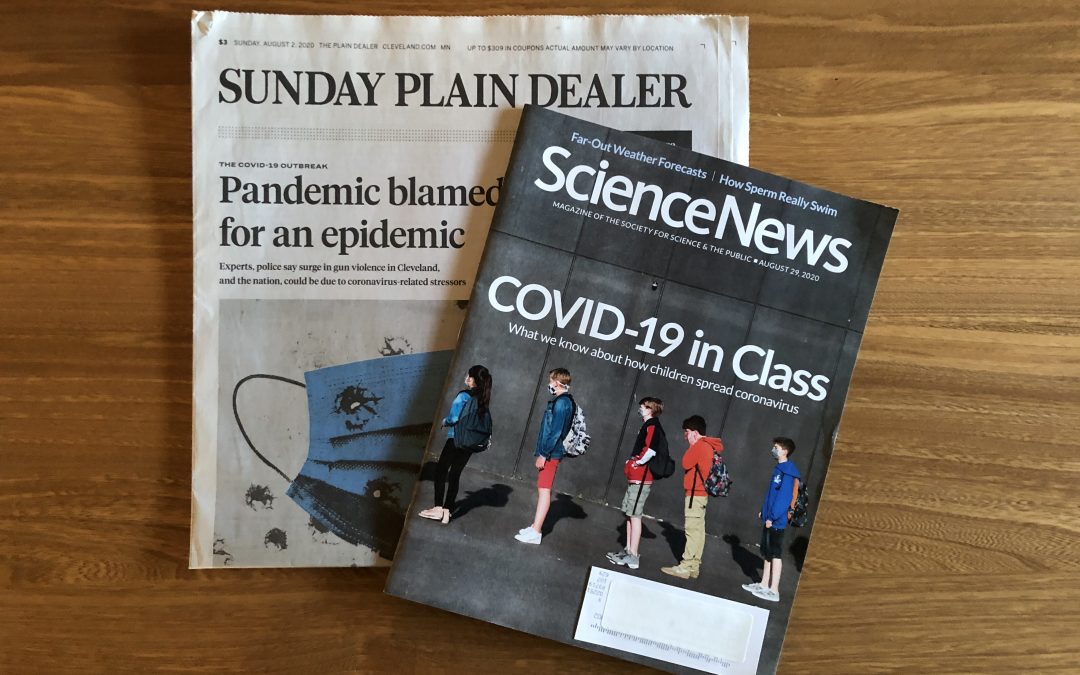Where do you get your science news? Finding credible sources for any news can be troublesome, and identifying reputable science news can be doubly difficult, especially since the lines between daily news and science news blur. We know that facts are important, but where do we begin? The average reader is going to get their scientific information from vastly different sources than scientists, who rely on peer-reviewed papers. No worries – we’ll work through this together, so you’ll know some trusted sources and easy ways to get to them.
Let’s begin with two key terms: valid and reliable. These terms are often used in tandem – like peanut butter and jelly – but they are not synonyms. And, just like peanut butter and jelly, you can have one without the other. Valid means that something is accurate, or it has a solid foundation in fact. Reliable means that something is consistent, or it can be trusted, like your high performing car that starts every time you turn the ignition. We want our news sources to be both. That said, stop and think about where you get your information. Recent data show that the majority of Americans get their news from social media, with the majority coming from Facebook. To me, this is downright scary because social media is the modern-day version of the telephone game: it doesn’t take long for the message to change. What’s even more alarming is that as COVID-19 became a household name, people turned to Facebook for health information with the top ten health misinformation sites outpacing the top ten official health institution sites. To put this in perspective, in April alone, misinformation sites got four times the number of hits as credible sites: 296 million hits compared to 71 million hits. We need to go to sites that offer valid and reliable information. Other studies have shown that Internet videos and comment sections contain more misinformation related to health issues than they do facts. This demonstrates that Dr. YouTube and the University of Google are not always the best places to go and can be dangerous because the more times a falsehood is stated, the more likely people are to believe it.
So, what do we do? We need to create science news literacy. In doing this, we have to be willing to think critically. Because scientific findings also have political implications, we have to forego our news biases – as in relying on left-leaning and right-leaning news sources – and we need to follow the straight and narrow. This means you just have to say no to the Huffington Post, BuzzFeed News, Fox News, and One America News and say hello to ABC, AP, BBC, CBS, USA Today, and ProPublica. And pay attention to The Weather Channel – they are really good at reporting the facts!
Here is a cross-section of reputable sites. You can always dig deeper, but these generally give you updated information on scientific topics. Good sources for popular science news include Science News Magazine, Science Daily, New York Times Science, NOVA, How Stuff Works, and Cool Science. For kids, check out Science News for Students and Science Made Simple. For the curious at large, see Understanding Science. For health information for consumers, these are reputable sites: MedlinePlus, National Institutes of Health, Cleveland Clinic, Mayo Clinic, and Merck Manual Consumer Version. The most popular site for health information, WebMD, is good, but if you’re a hypochondriac, this site is not for you. For your dogs and cats, try these two sites, WebMD Pet Health Center and Merck Veterinary Manual. The moral of the story: The Internet can be your friend or foe.
Signing Off for Science

